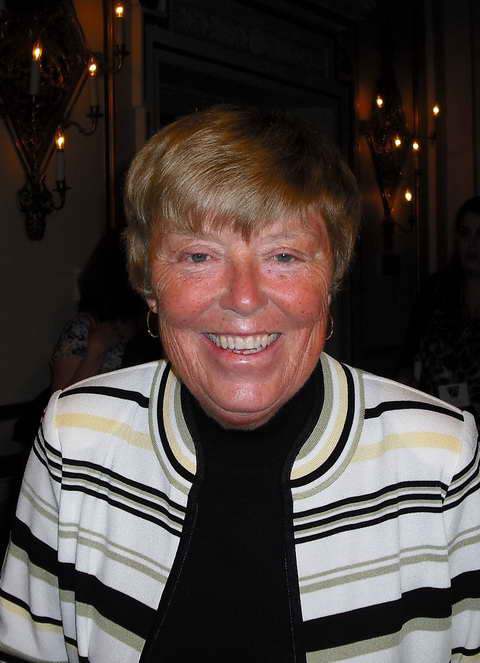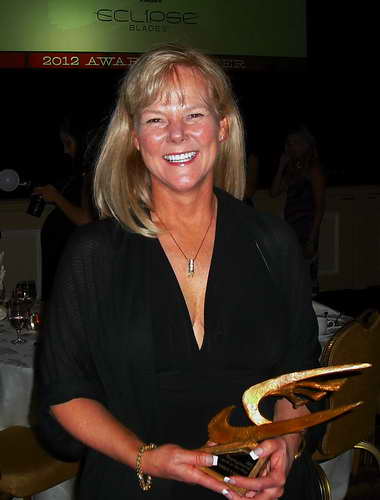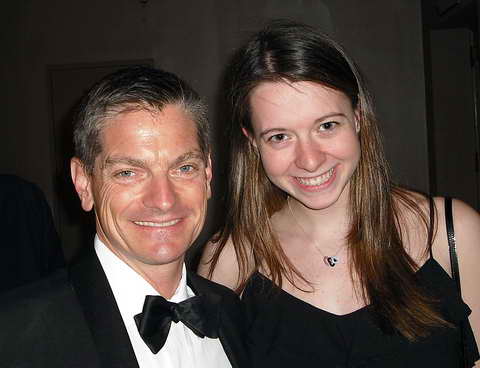|

(8 June 2012) The future of figure skating looks rather
bright at least based upon the strong turnout and optimistic mood
among those who attended the 2012 Professional Skaters Conference at
the Boston Park Plaza Hotel and Skating Club of Boston at the end of
May.
Nearly 580 attendees from throughout the U.S.,
Canada, Europe, Central America and Scandinavia participated in this
this popular annual event, held May 24 - 27, 2012, and known to be
the only formal coaches figure skating educational forum of its kind
to exist in the sport today.
In usual fashion, the conference revolved
around educating, inspiring and guiding coaches to cultivate and
develop exceptional skaters from the grassroots through the elite
competitive levels.
At the same time, there seemed to be a greater
intensity among all of those at this particular event and nearly all
of the coaches, presenters, organizers and officials who were on
hand here seemed to have a purpose and laser-like focus in regard to
making magic happen for American figure skating.
“We’re doing this to make the industry of a
high quality and to insure that it is all about the professional
image,” said Jimmie Santee, Executive Director of the Professional
Skaters Association. “We want to support the coaches and sport as
much as we can.”
This philosophy is evidently working based on
the high numbers of the conference. This year, attendance was
markedly higher compared to that of the 2011 Dallas event, which
drew a little more than 300 coaches, indicating that things
definitely appear to be on an upswing for the sport.
“We’re really pleased with the turnout,” said
Carol Rossignol, PSA Education and Accreditation Director. “Our
mission is to educate and we want to motivate everybody.”
 Kathy Casey
Kathy Casey By all accounts, motivation was the main theme here all weekend.
Speakers such as Paul Wylie, the 1992 Olympic silver medallist,
Kathy Casey, U.S. Figure Skating Director of Performance Enhancement
and Tracking for Elite Athletes, Christy Krall, who helped Patrick
Chan of Canada claim the 2011 and 2012 World title and Dr. Mahlon
Bradley, a former U.S. contender and U.S. Figure Skating Medical
Advisor, were just some of the domestic skating luminaries who
shared their experience, strength and expertise to educate, guide
and inspire those coaches in attendance.
“This has been a great conference,” said
Santee. “It’s all about refilling the emotional tank of the
coaches.”
Certainly, the PSA appears to have succeeded in
fulfilling their mission. Coaches seemed excited all weekend long,
and amidst catching up with one another, seemed genuinely happy at
the prospect of being further educated on their profession.
 Tammy
Gambill Tammy
Gambill
“Every time I come I’m always excited and
rejuvenated, I hear somebody say something in a different,” said
Tammy Gambill, the prominent California-based who won the 2012 PSA
Developmental Coach of the Year Award and who works with Richard
Dornbush, the 2011 U.S. silver medallist, and Vincent Zhao the 2012
Novice Men's Champion. “The PSA is such a great tool to keep on
learning."
During the conference, seminars ran round the
clock that focused on topics such as the athlete’s mindset, physical
strength, artistic quality, technical skills and preparedness for
high-pressure events. Nearly all of these seminars, held at both the
hotel and at the Skating Club of Boston, were packed, indicating a
strong initiative by the sport’s coaching community to keep
bettering itself.
Christy Krall, the champion of Dartfish
computer technology who coached Patrick Chan for more than two years
and helped him capture two consecutive World titles, presented a
cutting-edge seminar on jump technique was exceptional.
In her discussion, Krall, a former Olympic
contender, covered the eight basic steps of jumping. She explained
that there is the step, load, explode phases that occur in the
takeoff, a first and second gathering and then air position in the
air, and then the impact and the follow through on the landing. She
went the technique for each step in detail that explained why she
has become known as one of the most exceptional jump coaches in the
world.
“The execution of jumps is based upon universal
principles,” she said. “There are lots of ways to do jumps and the
ability to be calculated and measure significantly changes and
athlete’s development.”
Pasquale Camerlengo, the 2012 PSA Paul McGrath
Choreographer of the Year Award winner, was also an outstanding
presenter. He discussed the importance of selecting music, editing
it and matching it to the skater’s requirements, personality and
style to fit the rhythm exactly.
Camerlengo, who last year choreographed
programs for Alissa Czisny, the two-time U.S. titlist, Adam Rippon,
the 2012 U.S. silver medallist and Daisuke Takahashi, the 2011 World
silver medallist and 2010 World champion, among others, stressed the
importance of understanding how to work the International Judging
System in accordance with artistry.
“You want to capture the right thing, right
moment and pay attention to detail because details always make a
difference,” he said.

Paul Wylie, the 1992 Olympic silver medallist,
also had some vital words of wisdom to offer coaches in his keynote
address. The enigmatic former U.S. contender and long-time Smucker’s
Stars on Ice performer, who now coaches and lives with his family in
North Carolina, urged coaches to remember the joy and the fact that
it is possible to always recover from a setback.
“I had a lot of dips in my career, and if
there’s anything I can say, it’s that it is never too late,” said
Wylie, who became known as a comeback kid when he scored silver in
Albertville. (Up to that point, he had never placed higher than
ninth at a World Championships.)
According to Wylie, it is vital that the
coaches always have faith in their students.
“The coach has to persevere, it can be
frustrating at times, but it’s necessary,” he said. “My coaches, Evy
and Mary Scotvold, always believed in me and that was what really
helped to keep me going.”
|

